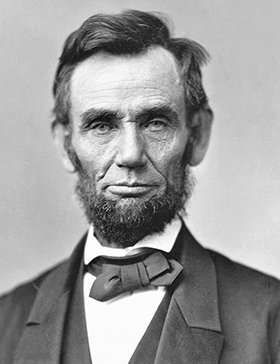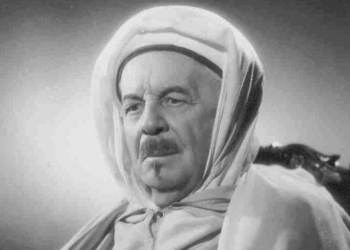By EARL SCHWARTZ
Nearly 80 years have passed since Israel’s founders signed its Declaration of Independence, which includes the pledge to develop the homeland of the Jewish People “for the good of all who dwell in it (pituah ha’aretz litovat kol tosh’veha),” in keeping with “liberty, justice and peace, as envisioned by the prophets of Israel. …”
Israel isn’t the only country with a founding document binding the nation to ethical principles. About 80 years after the American Declaration of Independence was issued, a somewhat peculiar president, in calling for rededication to ideals the American Declaration had affirmed, argued that those principles constituted a test: Could a nation, dedicated at its inception to human equality and certain unalienable rights, and now torn asunder by civil war, long endure?

These days, amid a comparable crisis, many Israelis have likewise bravely called for rededication to Israel’s founding tenets. To do so, however, will require a profound reorientation of government. Caught in crisis, nations often turn to self-destructive leadership, but crisis can also lead to renewal. The State of Israel has had its share of Samsons. Where will Israelis now find their Lincoln?
Not a savior or a saint, but someone like Lincoln, whose political compass was the conviction that politics must begin and end with the affirmation of human dignity. That he embodied this sensibility is most convincingly reflected in the impression he left on those with greatest reason to mistrust him.
Frederick Douglass, for one, recalled, “Though high in position, the humblest could approach him and feel at home in his presence. Though deep, he was transparent.” While frustrated by Lincoln’s vacillations, Douglass concluded that “measuring him by the sentiment of his country, a sentiment he was bound as a statesman to consult, he was swift, zealous, radical, and determined.” Sojourner Truth simply noted that she “never was treated by any one with more kindness.”
They were speaking of a politician who found the firmest common ground, not in ideological pretense, but shared humanity, a perspective he conveyed to those susceptible to anti-abolitionist arguments as well. In a letter to the New York Workingmen’s Democratic Republican Association, commenting on recent lynchings of African Americans in their city, he insisted, “It should never be so. The strongest bond of human sympathy, outside of the family relation, should be one uniting all working people, of all nations, and tongues, and kindreds.” All sweat, he argued, is created equal. So too, all tears.
Enroute to his inauguration, in a talk at Independence Hall in Philadelphia that foreshadowed his remarks at Gettysburg, he noted that the Declaration signed there signaled “hope to the world for all future time … that in due time the weights should be lifted from the shoulders of all men, and that all should have an equal chance. … can this country be saved upon that basis?”
Lincoln’s tenure as president has been described as the beginning of a second American revolution. Amid ensuing suffering and hope, his time in office proved revolutionary precisely because he understood that government by and for the people must ultimately be the work of the people. Turning the historical corner the country was facing required a rebirth of dedication to the principle that all should have an equal chance. As he hesitated and maneuvered, he was pushed and challenged by the populace, grew in his understanding of the put-up-or-shut-up moment Americans were facing, and midwifed that rebirth.
Israel has now reached such a juncture and is deeply in need of leadership dedicated to living out the vision of its Declaration, beginning with the principle that the land shared by Israelis and Palestinians be developed for the good of all who dwell there. Such a standard requires leadership attentive to those self-critical “prophets of Israel,” not bent on ending judicial oversight of governmental actions and not overly charmed by the current prime minister’s exemplar, Winston Churchill, whose politics were amply laced with condescension and disdain. History is replete with would-be titans who turn their ships of state into a Titanic. Israel is now sailing those seas.
Strengths and assets notwithstanding, Israel’s populace is traumatized and divided. Perhaps there’s a country lawyer from the Upper Galilee, of modest political success, whose reputation rests not on bravado, but on a growing appreciation of their humility, depth, transparency and kindness. Someone guided by the country’s founding principles, and a vision that begins and ends with shared humanity — all classes, nations, tongues and kindreds. Someone skilled in political process but not jaded by political games, who could assemble a broad-based administration, committed to a shared vision of national rebirth. Someone ready to listen, to learn and then to lead. Someone like Lincoln, an Abraham Lincoln.
***
Earl Schwartz is assistant religion professor at Hamline University.
(American Jewish World, February 2024)




















